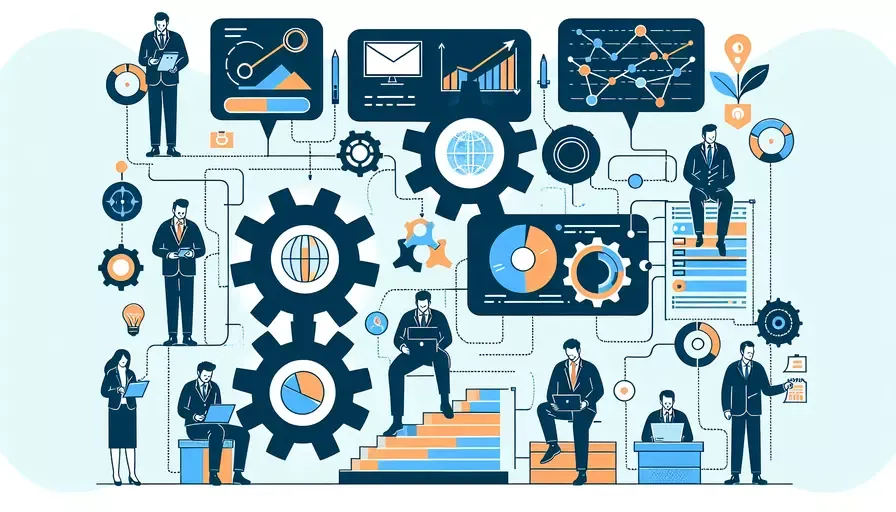The editor of Downcodes explains the four core functions of the management platform in detail. As an efficient software application, the management platform is designed to monitor, control and optimize various business processes. It is a key tool for enterprises to optimize resource allocation, improve work efficiency and ensure data security. It empowers enterprises to achieve digital transformation and enhance competitiveness through centralized data management, automated processes, complete user rights control and powerful data analysis functions. This article will delve into these core features and provide related FAQs to help you better understand and apply the management platform.

A management platform is a software application specifically designed to effectively monitor, control, and optimize various business processes. These platforms can provide centralized data access, automated workflows, user management, and data analysis capabilities. In enterprise-level applications, the management platform is particularly important. It helps enterprises achieve optimal allocation of resources, improve work efficiency, and ensure data security and compliance. Among them, centralized data access is a core feature of the management platform, which allows access to all necessary information and tools from a single interface, greatly improving management efficiency and the quality of decision-making.
Centralized data access is one of the core features of the management platform, which provides enterprises with a unified data access point by centrally storing all important business data in one place. This approach not only improves the speed and efficiency of data retrieval, but also greatly reduces the risk of data inconsistency. Through centralized management, companies can ensure that all decisions are based on the most accurate and timely information, making the decision-making process more efficient and reliable.
Centralized data access also helps improve cross-department collaboration. In a traditional business environment, different departments may use different systems to store and process their data, which can lead to the emergence of information silos and hinder effective communication and collaboration. The management platform facilitates cross-department collaboration and information flow by providing a shared data access environment that enables different departments to easily share and access each other's data.
The management platform greatly improves the efficiency and consistency of business operations by automating workflows. Automation tools can help businesses standardize their internal processes, reduce human error, and complete tasks faster. From simple task assignment and progress tracking to complex business logic processing, automation can provide significant benefits.
Another important benefit of automation is its ability to free up employees’ time from repetitive, mechanical tasks and focus on more valuable work, such as strategic planning and innovation. This not only improves job satisfaction, but also promotes the overall innovation and competitiveness of the enterprise.
The user management functions provided by the management platform enable enterprises to effectively manage the access permissions and roles of their employees. By defining different access levels and permissions, businesses can ensure employees only have access to the resources they need to do their jobs, thereby enhancing data security and confidentiality.
In addition, user management includes the ability to monitor and log user activity, which is critical to comply with compliance requirements and prevent data leakage and misuse. By monitoring user behavior in real time, enterprises can promptly discover and resolve potential security threats and protect the enterprise from losses.
Data analytics is another key feature of management platforms, allowing businesses to extract valuable insights from large amounts of data to support more informed decision-making. By using advanced analytical tools and algorithms, management platforms can help companies identify trends, predict future market changes, and optimize business processes.
Data analysis capabilities not only increase the speed of response of enterprises, but also provide customized insights to help enterprises maintain an advantage in a fiercely competitive market. Whether through improving customer service, optimizing supply chain management, or improving product quality, data analytics is a powerful tool that can help businesses achieve continuous improvement and growth.
As a comprehensive software solution, the management platform helps enterprises improve efficiency, enhance security, and make more informed decisions by providing core functions such as centralized data access, automated workflows, user management, and data analysis. . As technology develops and enterprise needs continue to change, management platforms will continue to evolve, providing enterprises with more powerful and flexible management tools.
What is a management platform project? A management platform project refers to a software or system used to help enterprises or organizations manage various businesses and processes. It can integrate multiple functional modules, such as human resource management, project management, financial management, etc., to improve the organization's efficiency and collaborative working capabilities.
What are the common features of management platform projects? Management platform projects often come with a variety of features to meet the needs of different organizations. Common functions include but are not limited to: employee management, including recruitment, training, attendance, etc.; project management, including task allocation, progress tracking, resource management, etc.; financial management, including budget control, reimbursement approval, financial statements, etc.; document management, including File sharing, version control, permission management, etc.; data analysis, including business indicator monitoring, data visualization, etc.
How to choose a management platform project that suits you? To choose a management platform project that suits you, you need to consider the following aspects: First, clarify your organization's needs and goals, and determine which functional modules are needed; second, evaluate the performance and stability of different management platform projects, and choose reliable suppliers or open source software; then, consider user experience and ease of use, and select a platform with a friendly interface and easy operation; finally, comprehensively consider factors such as price, technical support, and after-sales service to select the most cost-effective management platform project.
I hope the analysis by the editor of Downcodes will be helpful to you! If you have any questions, please feel free to ask.